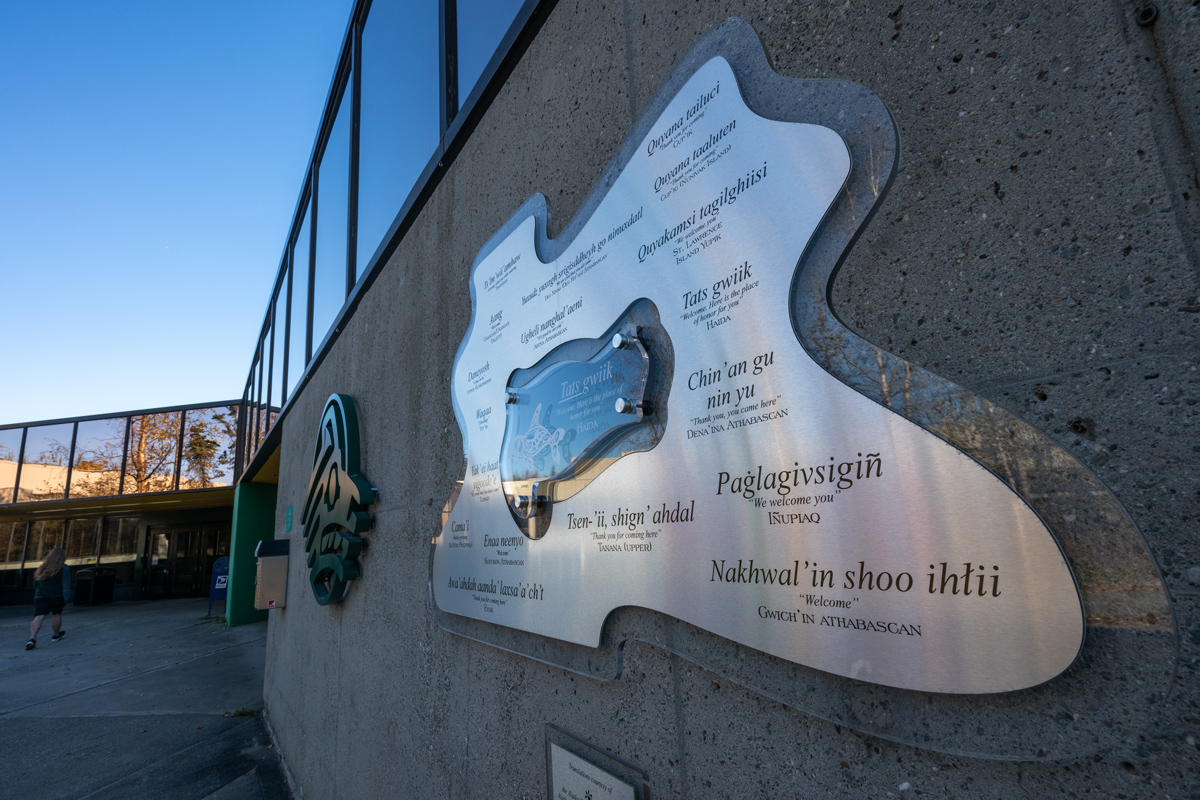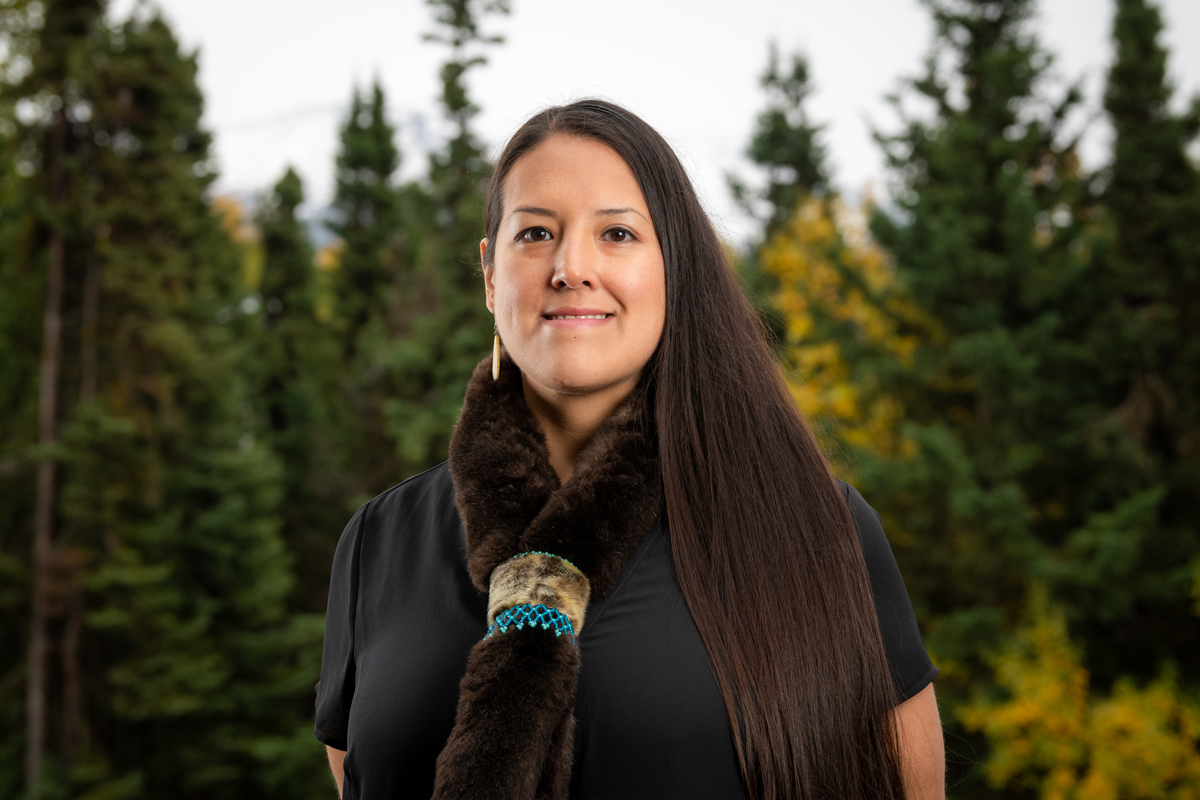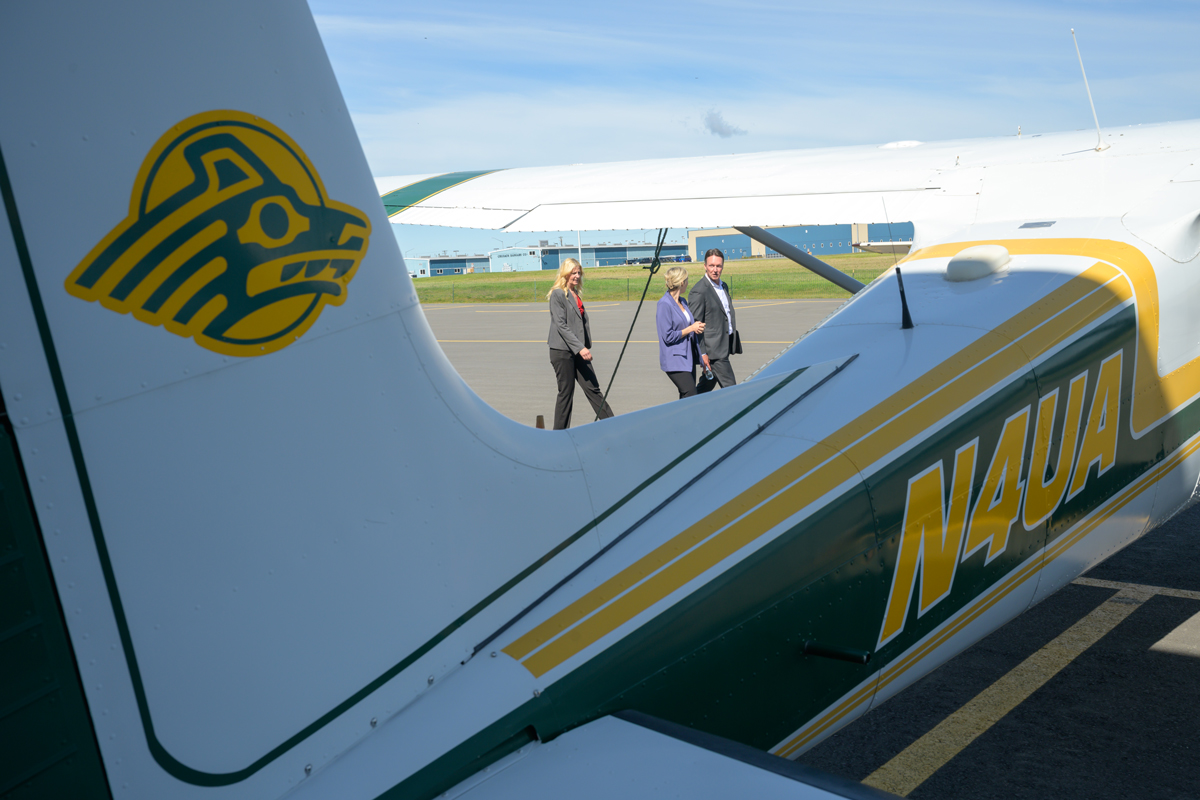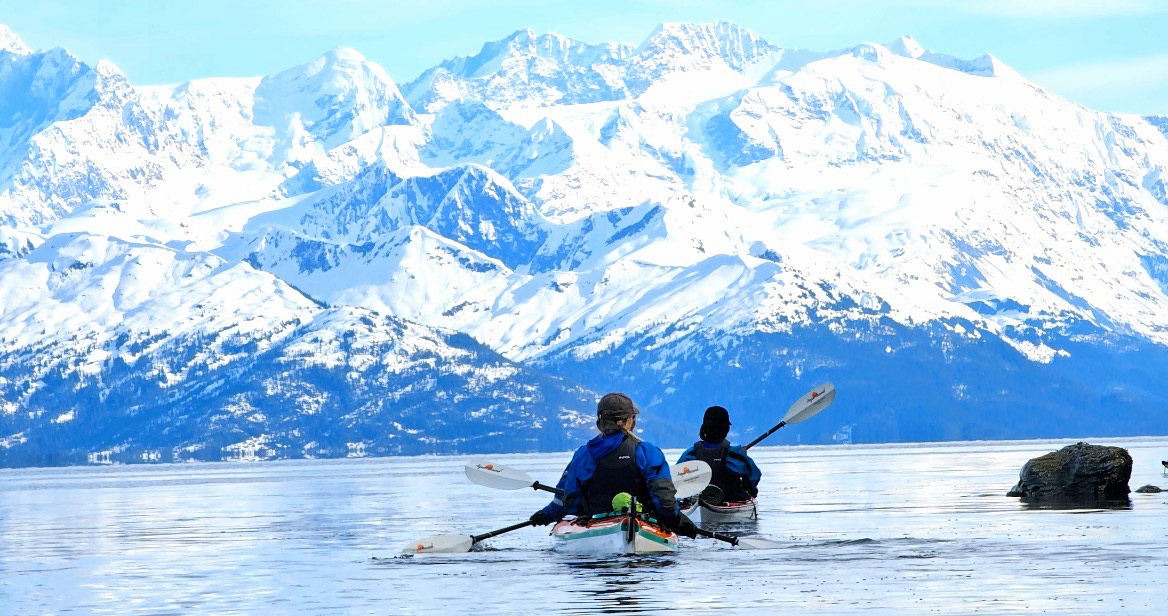138 miles in a kayak: PWSC students paddle from Whittier to Valdez
by Keenan James Britt |
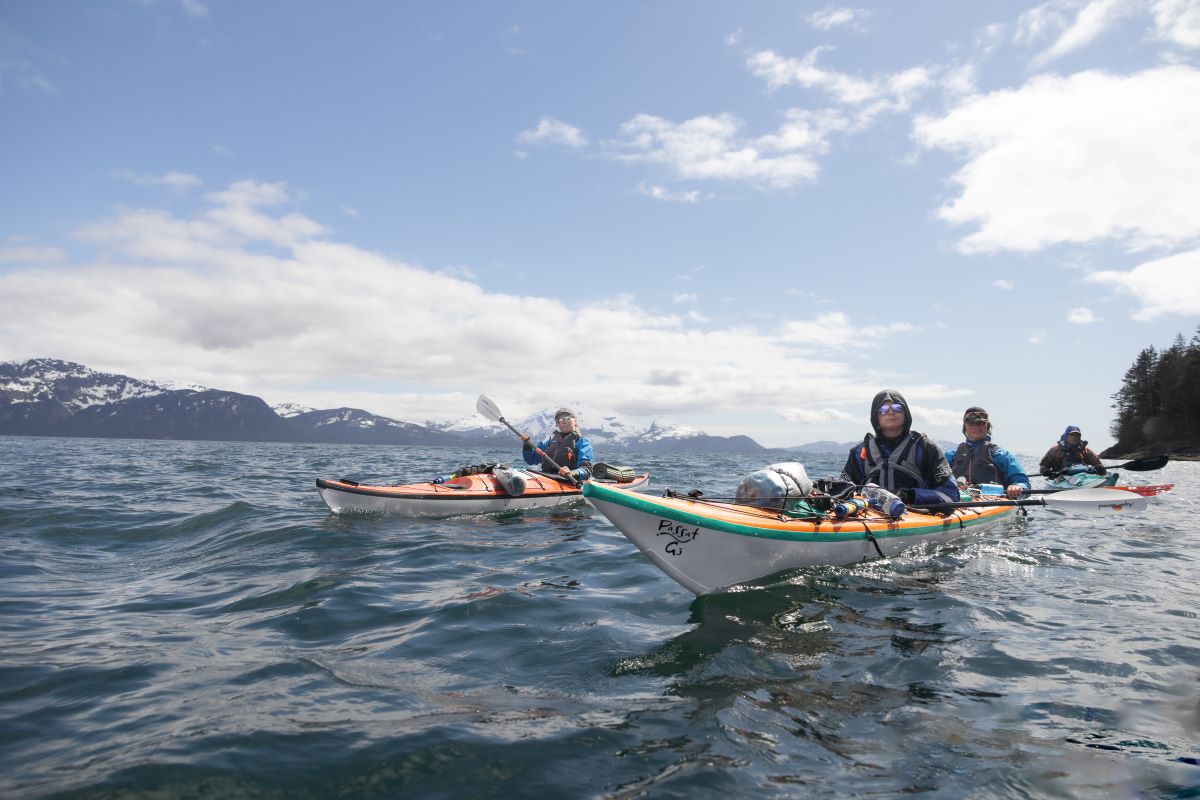
Six first- and second-year students in Prince William Sound College (PWSC)’s outdoor leadership program, and two instructors, completed a 14-day kayak capstone expedition. The capstone, led by Benjamin Rush, Ph.D., assistant professor of outdoor leadership, and PWSC outdoor leadership adjunct professor Carrie Abruzzo, took place May 11-24. The eight kayakers began the expedition in Whittier — arriving from Valdez via the Alaska Marine Highway System — and kayaked 138.2 miles along the eastern shore of Prince William Sound back to Valdez.
Preparing for the expedition involved extensive planning. Among the six students, two were responsible for preparing the expedition’s equipment, and another two planned the meals for the two-week trip — more than 385 pounds of gear and provisions. The other two students planned the route from Whittier to Valdez — or “so they thought,” said Rush. According to Rush, the exact route was pre-planned by the instructors, but the students needed to create their own travel plans as part of the experience:
“Pretty much, the camping spots between Whittier and Valdez are the places that we're supposed to camp,” said Rush “But [the students didn’t] know that. There's some guidelines as far as where to go, where not to go. And they have to have things like, where is there an accessible campground? Or a fee to camp on? Or bathrooms? Or is there a water source?”
Recent graduate Hannah Bogdan and first-year student Ryan Tulloch were responsible for menu planning for the group. The challenge required finding meals ideal for both nutrition and taste using ingredients that can be stored for two weeks in a kayak.
“Sometimes when you’re backpacking, everything is soft that you eat,” Bogdan said, “You eat soft fig bars and soft fruits, but you want something crunchy.” Providing an overview of her meal planning for the group before embarking, Bogdan explained, “I try to find dinners that are […] super high in calories, super high in protein. So we'll have curries and stir fries and soups. We have a taco night, we have lentils, and then I'm incorporating different types of foods, so we're not just eating pasta every night.”
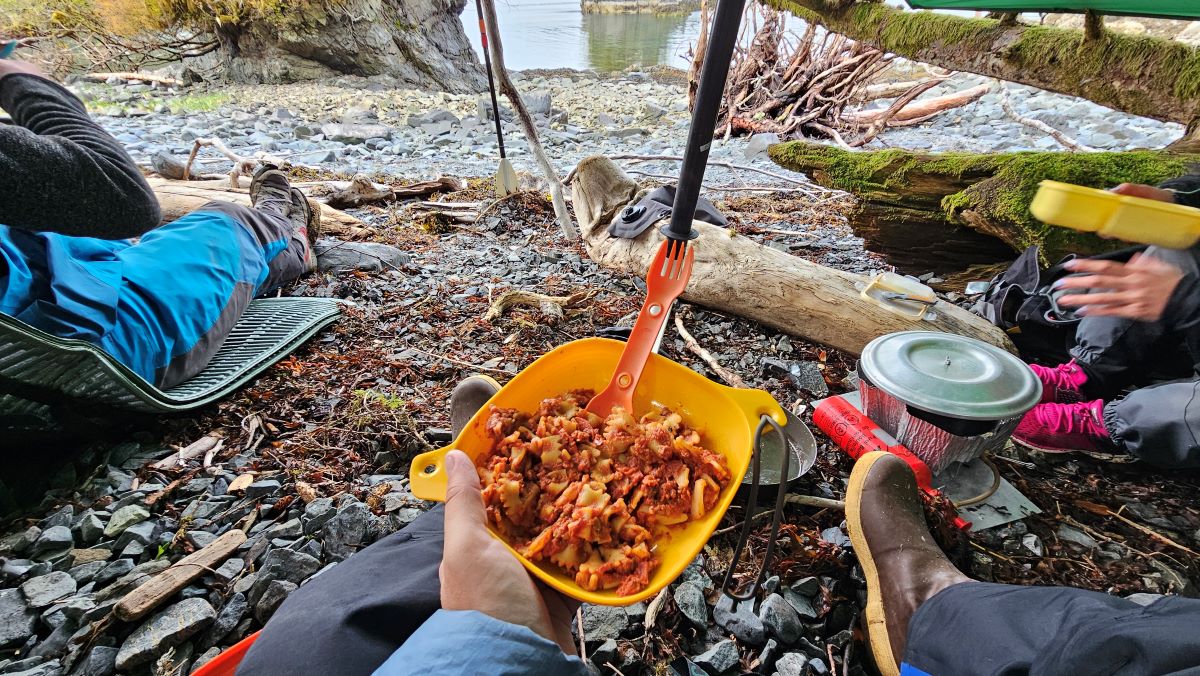
Once on the trip, cooking the food became part of the learning experience. “By the time they finish this two-week expedition, their skills will be honed in,” Rush said before embarking on the expedition, “Every day for 14 days, they’ll set up camp. They’ll cook. They’ll help each other out. They’ll get firewood […]. They’ll practice their stove. They’ll practice making tortillas […]. After two weeks, it becomes second nature. And that’s where this program excels.”
In addition to helping plan meals, Bogdan and Tulloch each brought their own unique skill sets along for the expedition.
Tulloch grew up in Montana and recently completed his first year in the outdoor leadership program and described his specialty as photography.
“I’ve been into photography for basically my whole life,” he said. “I’m trying to get more into doing this kind of thing as a career and a future, so this [was] a good experience as far as documenting trips and the outdoors and creating the story that goes along with it.” Over the 14 days, Tulloch documented his classmates as they kayaked, camped, cooked and explored the wilderness. Tulloch also experienced some of the difficulties of working in the field. “A lot of photos and videos I took are no longer on my SD card [...]. Hopefully I find them, and hopefully nothing happened to them when my camera fell into the water.”
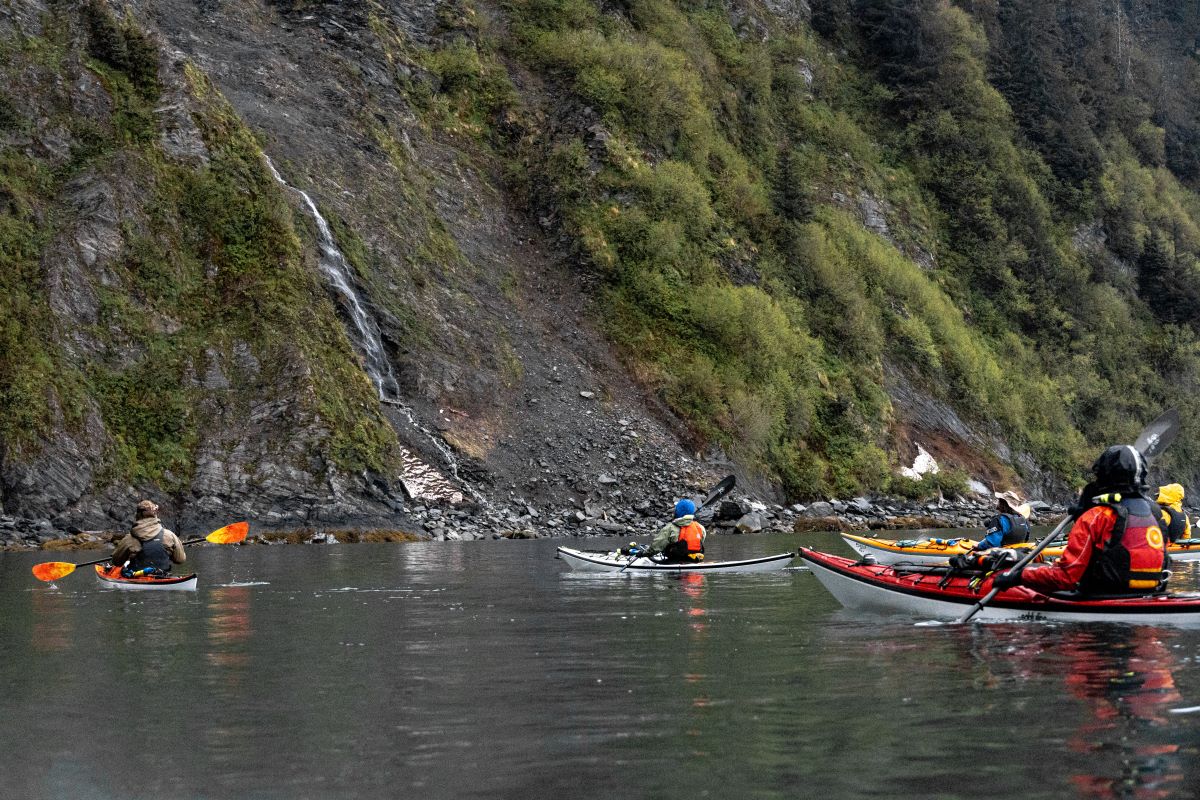
Originally from Illinois, Bogdan studied environmental sciences and outdoor leadership at PWSC, graduating with an Associate of Applied Science in outdoor leadership just days before the expedition launched from Whittier. Over the academic year, Bogdan conducted research on biofouling communities on an oyster farm in Port Valdez, a project that involved identifying marine invertebrates and other species. Bringing along the field guide she used at the oyster farm, Bogdan helped identify wildlife the group encountered.
“From whales to isopods, we saw species of just about every size,” Bogdan reports, “We even had a group of sea lions swim up the Valdez Narrows with us! That was incredible! We also saw many groups of jellyfish, which was wild! We saw tons of bird species!”
 "138 miles in a kayak: PWSC students paddle from Whittier to Valdez" is licensed under a Creative Commons Attribution-NonCommercial 4.0 International License.
"138 miles in a kayak: PWSC students paddle from Whittier to Valdez" is licensed under a Creative Commons Attribution-NonCommercial 4.0 International License.











